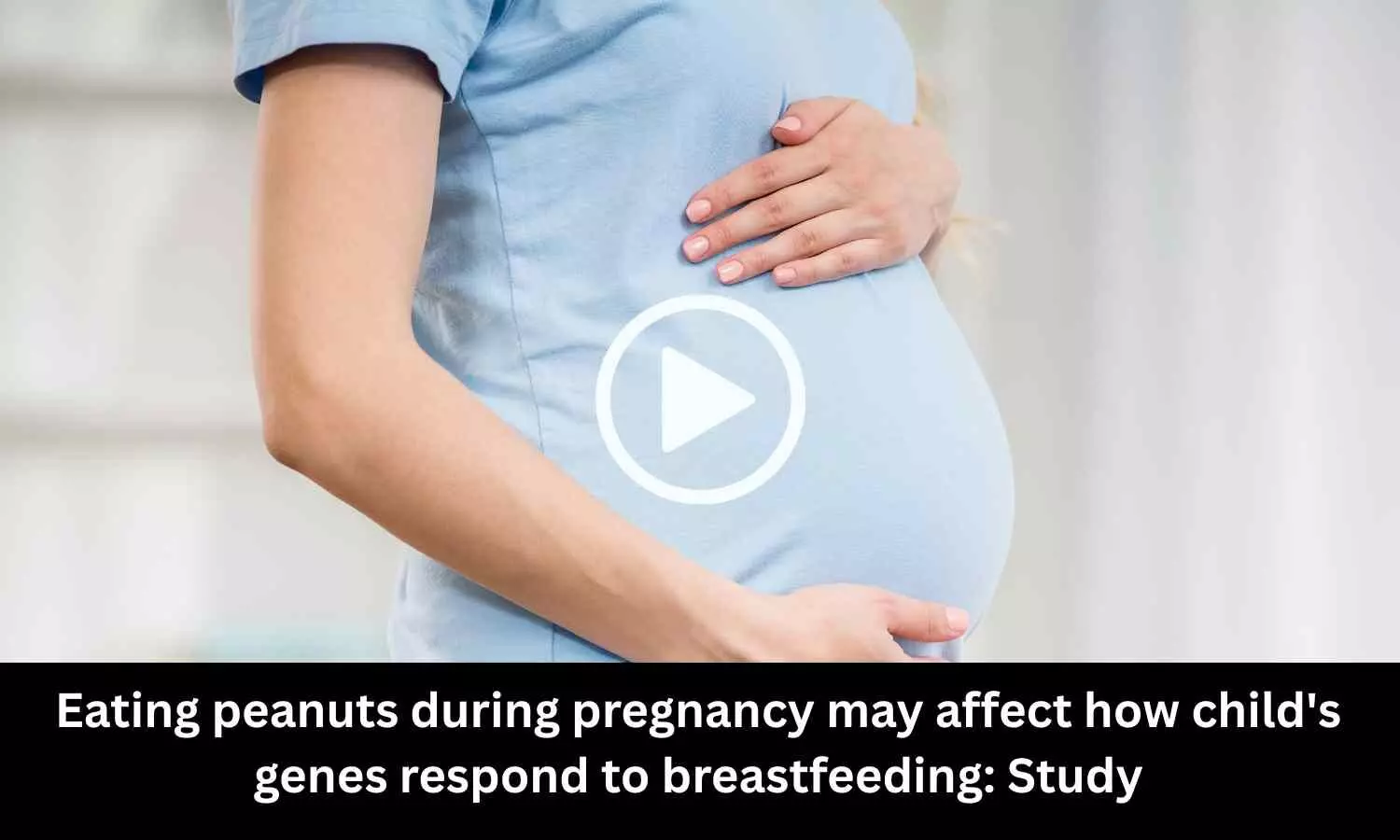Eating peanuts during pregnancy may affect how a child's genes respond to breastfeeding: Study Suggests
- byDoctor News Daily Team
- 29 October, 2025
- 0 Comments
- 0 Mins

Scientists at Syracuse University studied how eating peanuts duringpregnancyandbreastfeedingmight affect theDNA methylation(DNAm) patterns of children, potentially influencing theirbrain developmentand inflammation response. They recruited 35 children aged 2-7 and gathered data on maternal peanut butter and peanut consumption during pregnancy and lactation, breastfeeding duration, demographics, and child saliva samples for DNAm analysis. DNAm-an epigenetic mechanism-affects how genes related to neurodevelopment (like BDNF) and inflammation (IL6 and others) are expressed. The study was published in the journalFood Science & Nutrition. Researchers at Syracuse University studied how eating peanuts and peanut butter during pregnancy and breastfeeding affects children's DNA methylation, which influences gene activity. They recruited 35 children aged 2-7 and collected saliva samples for DNA testing along with questionnaires on maternal diet, breastfeeding, family background, and child experiences. They analyzed methylation changes in genes linked to brain development and inflammation. Results showed that children whose mothers consumed both peanuts and peanut butter during pregnancy had different DNA methylation patterns related to breastfeeding duration, suggesting maternal diet can shape a child's gene expression and health. The study found that when mothers ate both peanuts and peanut butter during pregnancy, longer breastfeeding was linked to increased DNA methylation in key brain development genes (BDNF and BDNF-AS), which may affect gene regulation positively. However, when mothers consumed only peanut butter, longer breastfeeding was associated with decreased methylation, possibly increasing gene expression. Maternal peanut intake also influenced inflammation-related DNA changes depending on household income and race. These effects may reflect nutritional differences between whole peanuts and peanut butter. Additional influences included household income and race, which interacted with maternal peanut intake to affect DNA methylation of inflammation-related genes, possibly reflecting differences in nutrient content or allergenicity between peanut products. Though the small sample size limits generalization, this study suggests that peanut consumption during pregnancy and lactation can epigenetically “prime” children’s genes, affecting brain development and inflammation regulation. More research is needed to better understand these relationships and how maternal diet might set the stage for offspring health through epigenetic modulation. Reference:Garay JL, Voss MA, Pilkay SR (2025). Effects of Maternal Peanut Intake and Breastfeeding Duration on Offspring DNA Methylation. Food Science & Nutrition, 13(10), e71129. DOI: 10.1002/fsn3.71129, https://onlinelibrary.wiley.com/doi/10.1002/fsn3.71129.
Disclaimer: This website is designed for healthcare professionals and serves solely for informational purposes.
The content provided should not be interpreted as medical advice, diagnosis, treatment recommendations, prescriptions, or endorsements of specific medical practices. It is not a replacement for professional medical consultation or the expertise of a licensed healthcare provider.
Given the ever-evolving nature of medical science, we strive to keep our information accurate and up to date. However, we do not guarantee the completeness or accuracy of the content.
If you come across any inconsistencies, please reach out to us at
admin@doctornewsdaily.com.
We do not support or endorse medical opinions, treatments, or recommendations that contradict the advice of qualified healthcare professionals.
By using this website, you agree to our
Terms of Use,
Privacy Policy, and
Advertisement Policy.
For further details, please review our
Full Disclaimer.
Recent News
mRNA COVID vaccines may improve survival rates in...
- 29 October, 2025
Scientists discover unexpected link between gray h...
- 29 October, 2025
Eating peanuts during pregnancy may affect how a c...
- 29 October, 2025
New Drug-Eluting Balloon Matches Standard Stents i...
- 29 October, 2025
Daily Newsletter
Get all the top stories from Blogs to keep track.


0 Comments
Post a comment
No comments yet. Be the first to comment!